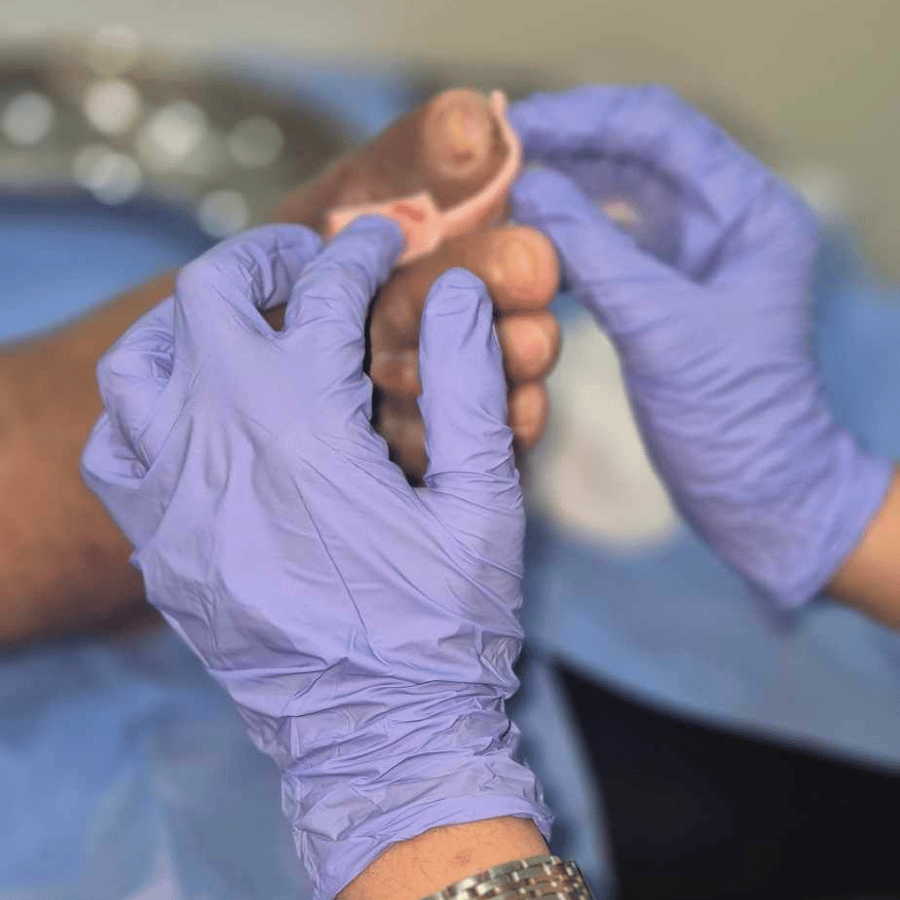Diabetic foot ulcers are one of the most serious complications faced by individuals living with diabetes. These wounds, often slow to heal, can lead to infections and, in extreme cases, amputation if not treated properly. Fortunately, with advancements in medical care and specialized management, a reliable diabetic ulcer cure is possible. Understanding the causes, risks, and effective treatments for diabetic foot ulcers is essential for diabetic patients and caregivers alike.
What is a Diabetic Foot Ulcer?
A diabetic foot ulcer is an open sore or wound that commonly develops on the bottom of the foot in people with diabetes. Due to high blood sugar levels, nerve damage (neuropathy), and poor circulation, diabetic patients have an increased risk of developing these chronic wounds. Reduced sensation means that minor injuries often go unnoticed, and impaired blood flow slows down the healing process.
Foot ulcers usually form from pressure points, cuts, blisters, or poorly fitting shoes, but if left untreated, these small wounds can deepen and become infected. This makes a prompt and structured approach to care crucial to achieving a successful diabetic ulcer cure.
Challenges in Healing Diabetic Foot Ulcers
Healing diabetic foot ulcers is notoriously challenging. Elevated blood sugar levels compromise the body’s ability to fight infection and regenerate tissue, often leading to prolonged wound healing. The risk of infection is particularly high, and untreated ulcers can progress to serious complications such as cellulitis, bone infections (osteomyelitis), and gangrene.
Because of these risks, many diabetic foot ulcers require more than just basic wound care. Infection control, wound debridement, moisture balance, and protective measures must be combined in a specialized treatment plan to reduce the chance of complications. Without proper management, the risk of lower limb amputation increases significantly.
Diabetic Ulcer Cure: Advanced Wound Care and Management
A comprehensive diabetic ulcer cure goes beyond simple bandaging. Advanced wound care techniques are necessary to promote healing and prevent infections. This involves professional wound cleaning to remove dead tissue and bacteria, the application of specialized protective dressings, and sometimes the use of modern therapies like negative pressure wound therapy or bioengineered skin substitutes.
Infection control plays a critical role in this process. Topical and systemic antibiotics may be prescribed depending on the severity of the infection. Additionally, offloading—reducing pressure on the ulcer through special footwear or devices—is essential to facilitate healing.
Kalingap Wound Care Clinic in Quezon City offers a structured treatment plan that combines these elements. Their expert-driven approach ensures patients receive tailored care suited to their unique condition, significantly improving the chances of a full diabetic ulcer cure.
Role of Preventive Education in Managing Diabetic Foot Ulcers
An essential aspect of diabetic ulcer management is patient education. Teaching individuals how to care for their feet daily can drastically reduce the occurrence and recurrence of ulcers. This includes inspecting feet regularly for cuts or blisters, maintaining proper hygiene, moisturizing to prevent skin cracking, and wearing comfortable, well-fitting shoes.
Patients are also advised on the importance of controlling blood sugar levels, quitting smoking, and maintaining a healthy lifestyle to improve circulation and immune function. Preventive education empowers patients to take an active role in their care, reducing the risk of future wounds and supporting a sustainable diabetic ulcer cure.
Regular follow-ups with healthcare providers allow early detection of any new or worsening foot problems, which is crucial for preventing complications.
Expert Care at Kalingap Wound Care Clinic, Quezon City
Kalingap Wound Care Clinic is a trusted facility dedicated to the treatment of diabetic foot ulcers and other chronic wounds. Located in Quezon City, the clinic specializes in advanced wound care that integrates the latest medical techniques with compassionate patient-centered service.
Their team of wound care specialists designs customized treatment plans based on thorough assessments, ensuring that every patient receives the right combination of wound cleaning, infection control, protective dressings, and offloading support. This expert approach leads to faster healing times and significantly improves the chance of a permanent diabetic ulcer cure.
The clinic also prioritizes accessibility and long-term foot health, providing education and support to help patients maintain their progress and avoid future ulcers.
Takeaway
Diabetic foot ulcers present a serious health challenge but can be effectively treated with a specialized and structured approach. Advanced wound care, infection control, offloading techniques, and patient education are all vital components of a successful diabetic ulcer cure.
For those struggling with diabetic foot wounds, seeking expert help early is key to preventing complications and promoting healing. Kalingap Wound Care Clinic in Quezon City offers expert-driven, accessible care tailored to each patient’s needs, providing hope and healing for diabetic foot ulcer patients.




